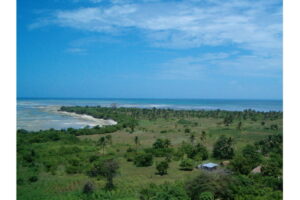
Dar es Salaam. The government is working on proposals to introduce legislation for the establishment of a Transport Board aimed at identifying, registering and overseeing transport professionals in Tanzania.
Speaking at the 40th graduation ceremony of the National Institute of Transport (NIT) on Saturday, December 21 Deputy Minister for Transport, David Kihenzile, said the proposed board would also be responsible for promoting professionalism and ethics among transport experts.
“The government, in collaboration with stakeholders including NIT, is preparing proposals for a law to establish a board for registering transport professionals,” he said.
“The aim is to identify, register and uphold the ethics of transport experts to ensure that all transport-related work is managed by qualified individuals,” he added.
Mr Kihenzile emphasised that the move would help to regulate the sector and ensure high standards of service delivery.
He also reaffirmed the government’s commitment to improving NIT’s teaching infrastructure to better equip the institution to train experts, conduct research and provide professional advice for the transport sector’s sustainable development.
He called on stakeholders in the transport industry to support NIT by offering students practical training opportunities and further developing innovations created at the institute.
“I urge stakeholders in the transport sector to support NIT’s efforts by providing practical training opportunities for students and fostering the development of innovations produced by the institute,” he said.
During the ceremony, NIT rector, Dr Prosper Mgaya revealed that 4,176 students had graduated across various levels, comprising 2,581 men and 1,595 women.
He acknowledged challenges faced by the institute, including limited infrastructure and human resources.
To address these, NIT is constructing dormitories, offices, classrooms, and garages, with three buildings set to be completed by February 2025 under the World Bank-funded EASTRIP project.
He said NIT is expanding to new campuses in Lindi and Kilimanjaro regions to ease overcrowding at its Dar es Salaam campus.
On staffing, Dr Mgaya said the institute continues to seek government approval to hire more lecturers and reduce reliance on temporary staff.














